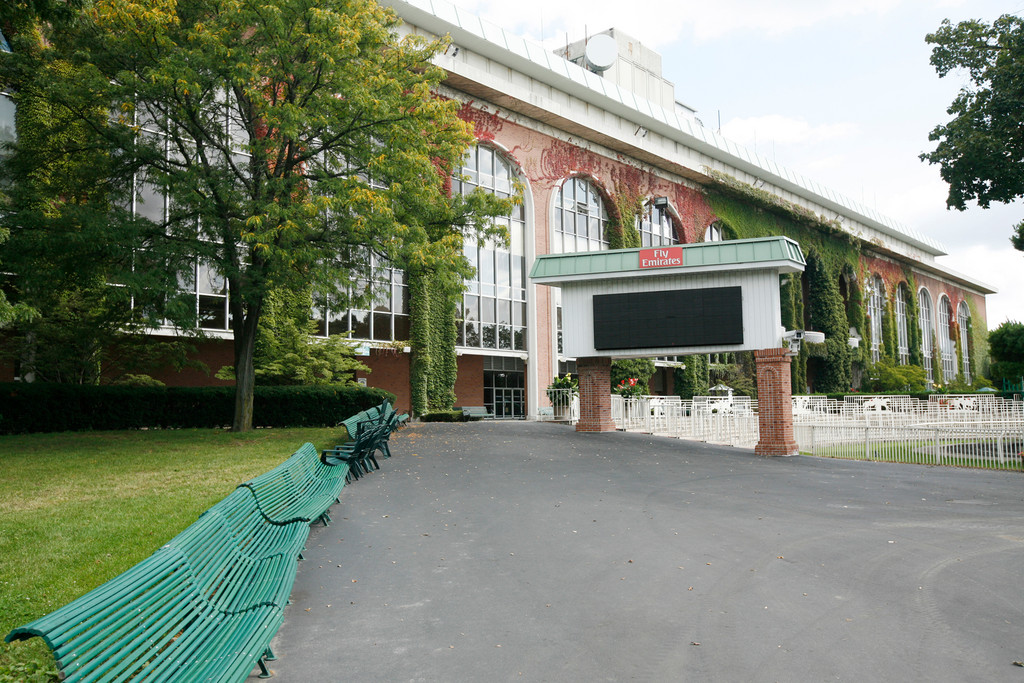Non-Indian casino reform wouldn’t alter Belmont plan
Separate statements made recently by top Albany lawmakers for Vegas-style gambling in non-Indian casinos have unsettled Elmont and the surrounding communities, which have expressed their support for a casino at Belmont Park — a plan that has been incubating for months, and is subject to negotiations between county and state officials and the Shinnecock Indian Nation.
Gov. Andrew Cuomo stated in August that he believed that New York should “come to grips” with the proliferation of casinos nationwide, begin cashing in on the industry and allow non-Indian casinos in the state. Currently, the state constitution permits gambling only on Indian land or through electronic slot machines at racetracks. New Yorkers spend an estimated $3 billion a year gambling in states with a wider variety of gaming outlets.
For a constitutional amendment to be passed in New York, it must be approved by both the House and Senate within two legislative sessions and pass a statewide referendum as well. The earliest date that non-Indian casino gambling could be permitted in New York, if an amendment is proposed, is 2014.
Senate Majority Leader Dean Skelos (R-Rockville Centre) and Assembly Speaker Sheldon Silver (D-New York City) both said they would support an amendment to allow non-Indian commercial gambling. Michael Whyland, a press secretary for Silver, said that although Silver generally opposes gambling, he would support such an amendment because New York is losing revenue to surrounding states.
“Gambling takes place in New Jersey, Pennsylvania and on tribal land, so we might as well look to capture revenue for the state of New York,” Whyland said, adding that although he isn’t aware of any drafted proposals, legislation could be introduced when the legislative session begins again in January.
Whyland also said that Silver has expressed support for non-Indian casinos to be built at racetracks, where gambling — electronic slot machines — already takes place. New York is home to nine racetracks. Whyland said that Silver would support a casino project at Aqueduct Racetrack in Queens, which is only six miles from Belmont Park. Video lottery terminals were recently installed at Aqueduct, and are expected to open this fall.
Whyland added that Silver would not support the development of inner-city casinos, which would likely attract low-income people. “He doesn’t want to see someone’s pay from an entire week being spent on their lunch break,” Whyland said.
What would an amendment mean for Elmont? According to the Shinnecock Nation, regardless of whether a proposal is made for an amendment — and whether that amendment leads to the construction of a casino at Aqueduct — the tribe’s plans for Belmont will not change. According to Randy King, chairman of the Shinnecock Indian Nation Board of Trustees, since the potential gambling market in New York is so large, the Shinnecock tribe isn’t opposed to adding non-Indian casinos to the mix.
However, King said, allowing casino development to continue under Native American leadership seems to be most beneficial to the state. On Sept. 7, King testified during a public hearing before the Senate Standing Committee on Racing, Gaming and Wagering on the potential of a constitutional amendment on casino gambling.
“The state of New York is the largest potential gaming market in the world,” King said. “With Native American casinos, whether in the Catskills or other locations in the New York City-Long Island area, New York can realize significant new revenues and tens of thousands of new jobs in the near-term future. Nation-state compacts authorizing Class 3 gaming operations run by Indian nations appear to be the most advantageous path for immediate benefits of gaming revenue for the both the Shinnecock Nation and New York state … because tribal gaming would not require a constitutional amendment, which would entail a lengthy, two-year-plus process with no guarantees for success of the amendment at the end of the process. The approval process can begin immediately for development of a Native American casino in the region, whereas the steps toward commercial gaming in the area would realistically be several years out from adoption for any proposed constitutional amendment.”
Non-Indian gambling is not a new topic for the state. In 1997, a constitutional amendment legalizing casino gambling was passed by the Democrat-controlled Assembly, but was halted in the Republican-controlled Senate.
Check back for updates to this story. Comments about it? JNash@liherald.com or (516) 569-4000 ext. 214.






